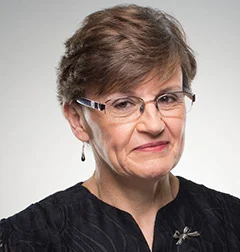
Wills & Estates Newsletter – May 2019
Published on May 17, 2019 by Adelaide Ryan, Dianne Retief, Josephine Heesh and Rebecca Tidswell
In this edition our team report on the following topics:
- What happens if you find a will on the deceased’s iPhone?
- Make changes to your Costs Affidavit in Family Provision Claims
- A warning for executors: Financial impacts of delays in the sale or transfer of the family home
- Wills & Estates FAQ
What happens if you find a will on the deceased’s iPhone?
In the recent decision delivered by the Supreme Court of Queensland Quinn (Dec’d), Re [2019] QSC 099 it was determined that a video recording of a Will recorded on an iPhone by the deceased be admitted to Probate as an “informal Will” as it met the requirements of Section 18 of the Succession Act 1981 (Qld) (this section provides the Court the discretion to dispense with the formal requirements for a valid will having regard to any evidence).
Josephine Heesh, Partner
Adelaide Ryan, Associate
Make changes to your Costs Affidavit in Family Provision Claims
Practitioners who appear regularly in the family provision list are well versed in the practical pointers provided by Practice Note SC EQ 7. It is designed to provide a compass to guide the Court, the litigants, and the legal advisers, as to the general course that will usually be followed.[1]
Paragraph 6 of the Practice Note prescribes the documents to be filed by a plaintiff before the first directions hearing. One of those documents is an affidavit setting out an estimate of the plaintiff’s costs and disbursements, calculated on an ordinary basis, up to and including, the completion of mediation (Costs Affidavit).
Most practitioners will have well used precedent documents to fulfil the requirement for costs disclosure.
However, we will need to think more carefully about our Costs Affidavits after the judgment of Hallen J in Oxley v Oxley [2018] NSWSC 91 (Oxley).
Rebecca Tidswell, Special Counsel
Adelaide Ryan, Associate
A warning for executors: Financial impacts of delays in the sale or transfer of the family home
When a person dies and leaves the family home as part of their estate (Principal Place of Residence), it is very important that once a Grant of Probate (or Administration) is obtained, the Principal Place of Residence is sold and settlement takes place within two years of the date of death of the deceased (this means that contracts must have been exchanged and completed).
If the Principal Place of Residence is not sold within the relevant time frame, there may be capital gains tax consequences for the estate upon the eventual sale of the Principal Place of Residence. The property can be rented out during the two year period and the use of the property for income-producing purposes will not attract any capital gains tax. Provided that the property is sold and settlement takes place within the two year period, the Principal Place of Residence exemption applies.
Josephine Heesh, Partner
Dianne Retief, Lawyer
Wills & Estates FAQs
- What is a Will?
A will is a document evidencing your testamentary intentions in relation to what happens to your money and other assets in the event of your death. A will must meet all the formal requirements in order for it to be a valid will. If you require a new will, we would be pleased to assist.
- Did you know that Superannuation Benefits do not form part of your estate?
Any superfund account balances accumulated during your working life are payable in accordance with any nomination form you may have provided to your superfund. Any life insurance within the superfund may be payable on your death and, if so, it will form part of the superfund account balances (known as the superfund death benefits). If you have not completed such a form or if you require assistance in preparing and advising you on a nomination, we would be pleased to assist.
Adelaide Ryan, Associate
Dianne Retief,Lawyer
[1] Oxley v Oxley [2018] NSW SC at [78].



